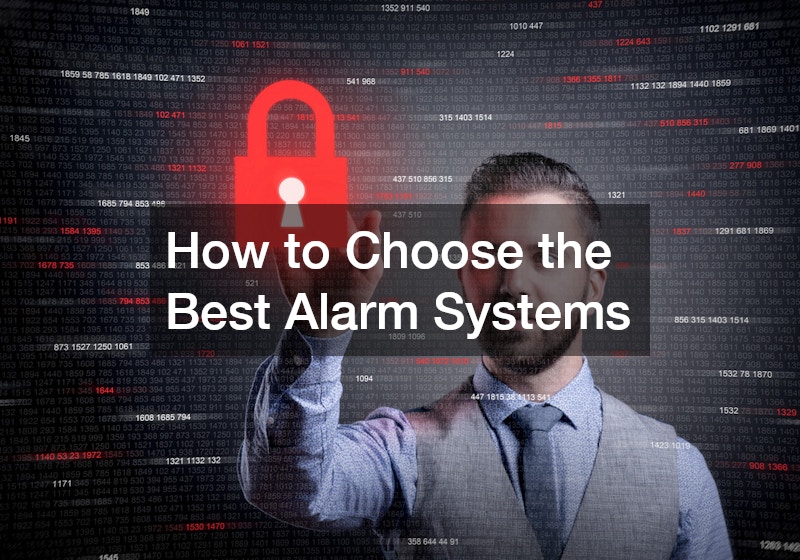
In an increasingly interconnected world, security concerns are at the forefront of considerations for homeowners and business owners alike. An effective alarm system serves as a robust deterrent against potential intruders, providing both safety and peace of mind. With rapid advancements in technology, today's alarm systems offer a wide array of options, enabling users to tailor security measures to their specific needs.
Sensors are the backbone of any alarm system, detecting unusual activity and triggering alerts. Motion detectors, for instance, monitor movement within a designated area and are ideal for detecting unauthorized entry.
Video Source
Glass break sensors, on the other hand, identify the sound of breaking glass, providing early warnings of potential break-ins.
The door and window contacts are essential components that create a barrier of protection around entry points in a building. These sensors activate when a door or window is opened, serving as a primary alert mechanism. Choosing the right sensors tailored to your specific security needs is crucial for an effective alarm system.
Furthermore, evaluating the sensitivity and range of these sensors can significantly affect their performance in safeguarding your property. It's important to consider the environment and possible interferences to ensure optimal functionality. Working with professionals can help you strategically place sensors to maximize their coverage and efficiency.
With the rise of smart home devices, integrating an alarm system with these technologies has become increasingly popular. This integration enables users to control and monitor their security systems remotely through smartphones and tablets. In addition, many modern alarm systems offer compatibility with voice assistants, enhancing user convenience.
By using smart home integration, users can automate responses and receive instant notifications of security breaches. Compatibility with platforms like Amazon Alexa or Google Assistant means that users can manage their systems with simple voice commands, further adding to the convenience. The seamless integration contributes significantly to the overall user experience and enhances the overall security protocol.
Moreover, the ability to connect your alarm system with other smart home devices such as lights and cameras can establish a more comprehensive security network. This connected ecosystem can allow for automated actions, like turning on lights or recording video upon detecting motion. An integrated approach not only provides additional security but also offers insights into home activity patterns.
The upfront cost of purchasing an alarm system usually includes the price of equipment and installation. While these initial costs can vary depending on the complexity and brand of the system chosen, potential buyers should also factor in long-term expenses. Monitoring fees, maintenance, and necessary upgrades can considerably alter the overall investment over time.
An advantage of considering long-term expenses is gaining a realistic view of the ongoing financial commitment required. Regular maintenance ensures that your system remains reliable and functional, preventing unforeseen failures. Upgrades may be necessary to keep your system compatible with advancements in technology and evolving security threats.
Careful budgeting and planning can ensure that your chosen alarm system provides continuous, hassle-free security without unexpected financial strain. Comparing different pricing models and service plans can enable you to find the most cost-efficient option. Thoroughly researching and understanding all costs involved can help you avoid hidden fees and surprise charges.
For those working within a tight budget, numerous alarm systems offer essential security features without breaking the bank. Many cost-effective options still include critical functionalities like basic sensors and mobile app access. It is wise to explore deals and discounts which can significantly reduce the initial purchase costs.
Budget-friendly systems may lack some advanced features found in higher-end models but still provide a dependable level of security. Reviews and ratings from other customers can provide insights into performance and reliability. Additionally, opting for systems with modular designs may allow for gradual enhancements as budget permits.
Consumers should prioritize essential features such as reliable monitoring and sensor accuracy while exploring economical options. Focusing on core security functions ensures you do not compromise safety for cost. Researching brands known for value-for-money offerings can lead you to an ideal, budget-conscious choice.
Choosing the best alarm system requires a careful balance of evaluating both features and budget signals. It's essential that potential buyers prioritize their individual security needs, considering the type of property and levels of protection needed. Whether choosing a budget-friendly option or a high-end system, informed decision-making will ensure effective security and peace of mind.
.